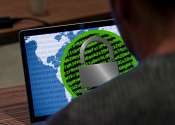Four arrested in international anti-malware sweep
Authorities arrested four people and took down or disrupted more than 100 servers in the "largest ever" operation against botnets that deploy ransomware, Europol said Thursday.
May 30, 2024
0
1
Security

Authorities arrested four people and took down or disrupted more than 100 servers in the "largest ever" operation against botnets that deploy ransomware, Europol said Thursday.
May 30, 2024
0
1
Internet

Outside the world of open-source software, it's likely few people would have heard about XZ Utils, a small but widely used tool for data compression in Linux systems. But late last week, security experts uncovered a serious ...
Apr 4, 2024
0
31
Security

While ransomware incidents have been occurring for more than 30 years, only in the last decade has the term "ransomware" appeared regularly in popular media. Ransomware is a type of malicious software that blocks access to ...
Nov 18, 2023
0
8
Security

Artificial intelligence (AI) tools such as ChatGPT can be tricked into producing malicious code, which could be used to launch cyber attacks, according to research from the University of Sheffield.
Oct 24, 2023
0
46
Security

Meta on Wednesday warned that hackers are using the promise of generative artificial intelligence like ChatGPT to trick people into installing malicious code on devices.
May 3, 2023
0
83
Consumer & Gadgets

Apple's latest security update was easy to miss. But security experts are warning that everyone should update any Apple device they have immediately.
Aug 19, 2022
0
6
Security

A new method that could automatically detect and kill cyberattacks on our laptops, computers and smart devices in under a second has been created by researchers at Cardiff University.
May 20, 2022
0
352
Business

A new type of scam has emerged in the hype-filled world of cryptocurrency: the "rug pull."
May 11, 2022
1
25
Security

The state-backed Russian group behind a massive hacking campaign revealed last year has re-emerged with a series of attacks on government agencies, think tanks, consultants and other organizations, according to officials ...
May 28, 2021
0
4
Software

While web shells have been removed that previously provided attackers access to Microsoft Exchange Servers, the FBI has revealed that some malicious software might remain that hackers are still using as backdoors into victim ...
Malware, short for malicious software, is software designed to infiltrate or damage a computer system without the owner's informed consent. The expression is a general term used by computer professionals to mean a variety of forms of hostile, intrusive, or annoying software or program code. The term "computer virus" is sometimes used as a catch-all phrase to include all types of malware, including true viruses.
Software is considered malware based on the perceived intent of the creator rather than any particular features. Malware includes computer viruses, worms, trojan horses, most rootkits, spyware, dishonest adware, crimeware and other malicious and unwanted software. In law, malware is sometimes known as a computer contaminant, for instance in the legal codes of several U. S. states, including California and West Virginia.
Malware is not the same as defective software, that is, software which has a legitimate purpose but contains harmful bugs.
Preliminary results from Symantec published in 2008 suggested that "the release rate of malicious code and other unwanted programs may be exceeding that of legitimate software applications." According to F-Secure, "As much malware [was] produced in 2007 as in the previous 20 years altogether." Malware's most common pathway from criminals to users is through the Internet: primarily by e-mail and the World Wide Web.
The prevalence of malware as a vehicle for organized Internet crime, along with the general inability of traditional anti-malware protection platforms to protect against the continuous stream of unique and newly produced professional malware, has seen the adoption of a new mindset for businesses operating on the Internet - the acknowledgment that some sizable percentage of Internet customers will always be infected for some reason or other, and that they need to continue doing business with infected customers. The result is a greater emphasis on back-office systems designed to spot fraudulent activities associated with advanced malware operating on customers computers.
This text uses material from Wikipedia, licensed under CC BY-SA